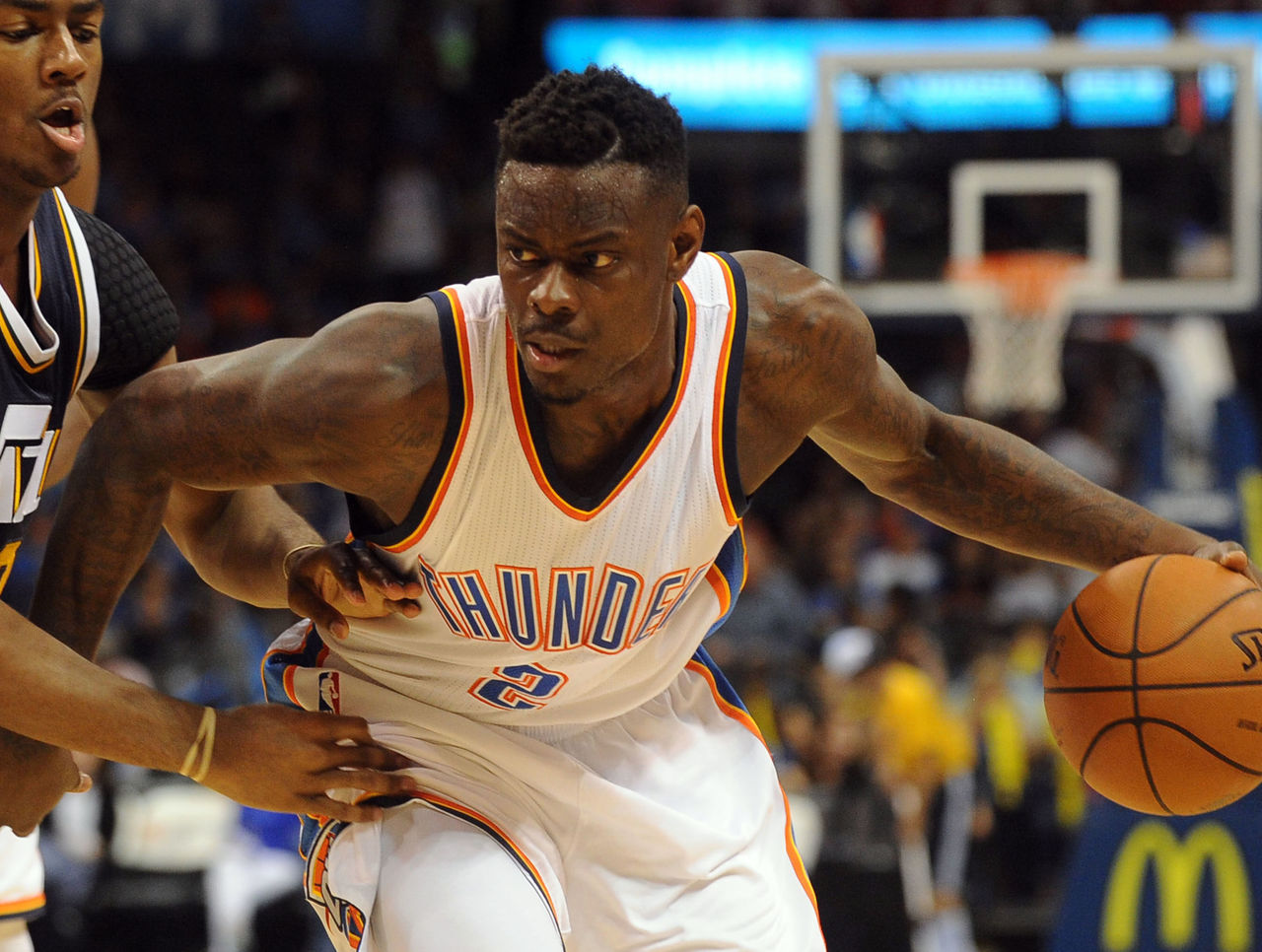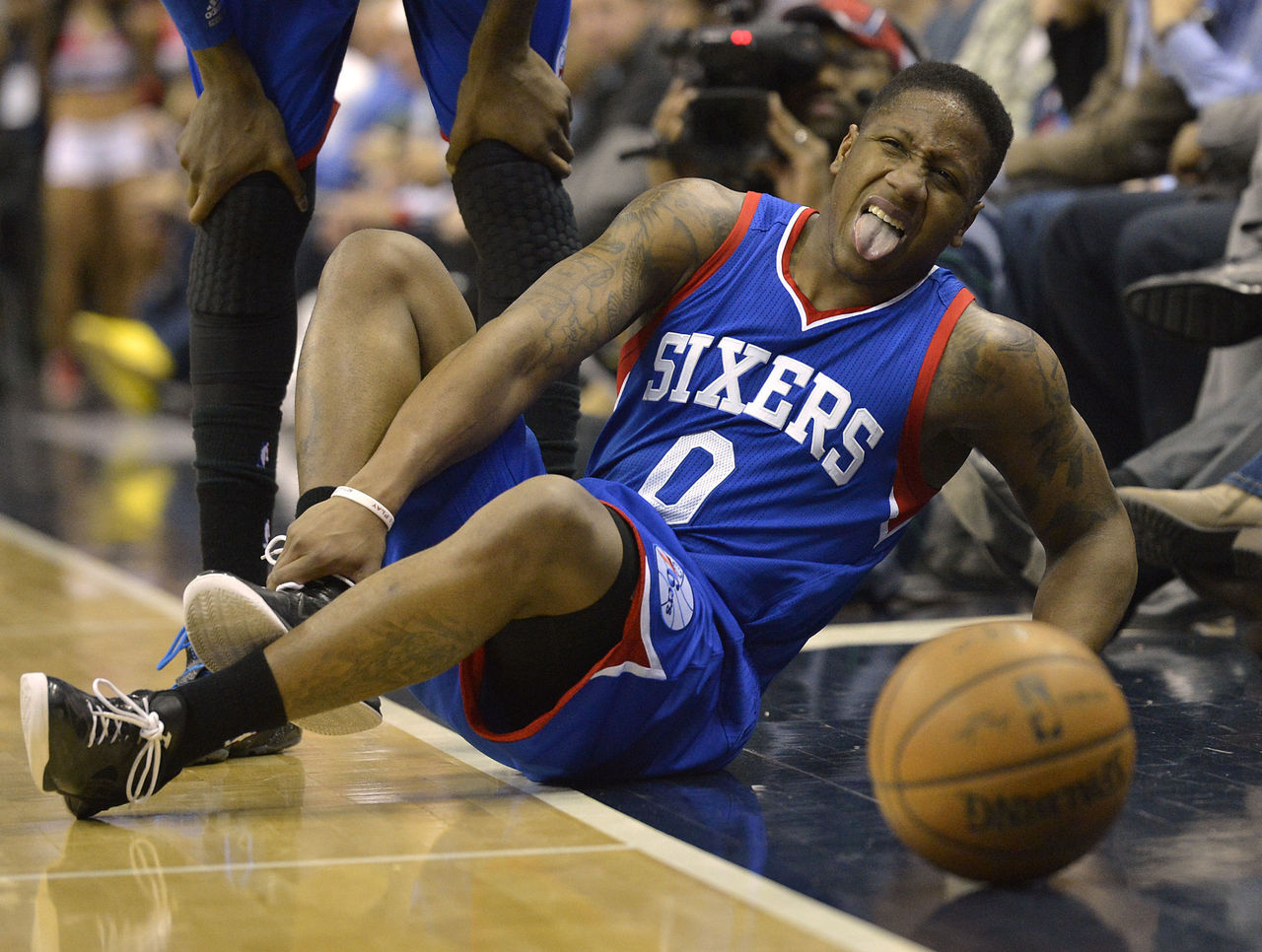DFS: The Need for Speed - 5 NBA Teams that Play at a Fast Pace
Following our companion piece on the value of pace for DFS purposes, we'll now take a look at five teams who should continue to be among the leaders in possessions per 48 minutes.
In short: more possessions give the offensive team more chances at points and assists, while providing the defensive team increased opportunities for steals, blocks and rebounds.
Pace is defined as the number of possessions a team averages per 48 minutes, while assist rate is the percentage of a team's field goals that are assisted. The two figures go hand-in-hand, as theoretically, teams that play at a fast pace are likely to rely on ball movement rather than isolation plays or post-ups that take a long time to develop.
Here's a look at the five teams featured in this piece, along with their 2014-15 rankings in pace and assist rate (stats courtesy NBA.com)
| Team | Pace | Rank | Assist Rate (%) | Rank |
|---|---|---|---|---|
| Golden State Warriors | 100.69 | 1 | 66 | 2 |
| Houston Rockets | 99.25 | 2 | 60 | 10 |
| Boston Celtics | 98.40 | 5 | 62.9 | 3 |
| Oklahoma City Thunder | 98.35 | 6 | 52.8 | 29 |
| Philadelphia 76ers | 98.28 | 7 | 60.9 | 8 |
Golden State Warriors
Last season's NBA champs were the leaders in pace and runners-up in assist rate, with Swiss army knife Draymond Green being the unlikeliest DFS surprise - providing coverage in almost every category as a small-ball PF/C.
Green, as well as MVP Stephen Curry and running mate Klay Thompson, isn't going under the radar this year, so DFS participants will have to pay up to secure his services. With almost the entire roster returning except for backup PF David Lee, more of the same should be expected from Golden State.

(Less obvious) player to watch: Festus Ezeli
When Golden State made its NBA Finals-altering decision to bench center Andrew Bogut in favor of Andre Iguodala, Ezeli was the lone "true" big man to see playing time, albeit a limited amount. As seen below, Ezeli's regular season per-36-minute stats bested Bogut's in three relevant categories.
| Player | Points | Rebounds | Blocks |
|---|---|---|---|
| Ezeli | 14.4 | 11.1 | 3.0 |
| Bogut | 9.6 | 9.1 | 2.6 |
With the aforementioned Lee traded in the offseason, Ezeli should see more playing time, especially if Bogut is injured or when Golden State looks to put a more athletic lineup on the floor.
Houston Rockets
Aside from playing at a pace bested only by Golden State, Houston led the league in three-pointers attempted per game by a wide margin, at 32.7 to second place Cleveland's 27.5.
James Harden dominates the ball and provides value in nearly every category, while Dwight Howard (when healthy), Trevor Ariza, Corey Brewer, Donatas Motiejunas, Terrence Jones and the point guard combo of Patrick Beverley and Ty Lawson can all be viable DFS options on a given night.
Houston prides itself on being analytically-minded and emphasizes three-pointers and shots at the rim, so don't expect its offense to change much this season. Due to the team's depth, it may take an injury or two for some of its rotation players to see enough playing time to warrant DFS selection.

(Less obvious) player to watch: Clint Capela
Howard missed exactly half the season in 2014-15, and his backup projects to be Clint Capela. The second-year Swiss big man spent most of his rookie year in the D-League, and ended up featuring in more playoff games (17) than regular-season contests (12) with the Rockets.
While extremely raw and without much of an offensive game beyond alley-oops and putbacks, Capela still put up strong per-36-minute stats:
| Timeframe | Points | Rebounds | Blocks |
|---|---|---|---|
| Regular season | 12.9 | 14.5 | 3.6 |
| Playoffs | 16.2 | 11.9 | 2.6 |
Howard will serve a one-game suspension to open the 2015-16 season, so Capela could be off and running in his quest for a bigger role.
Oklahoma City Thunder
The Thunder provide our first discrepancy between our two statistics; despite ranking sixth in pace, the team was 29th in assist rate, no doubt due to PG Russell Westbrook's tendency to go it alone, especially in the wake of SF Kevin Durant missing 55 games.
Aside from Durant's health, other questions remain, namely how new coach Billy Donovan will adjust from college to the NBA, and how the team will balance playing either a strictly offensive-minded center (Enes Kanter) or a defensive one (Steven Adams).
From a DFS point of view, a lineup featuring Durant, Westbrook and Kanter together might not be able to stop anyone, but could score so many points it may not matter.

(Less obvious) player to watch: Anthony Morrow
A career 43 per cent three-point shooter, Morrow averaged 10.7 points per game last season despite never being in the starting five. The idea of Morrow being afforded room to fire away due to the defensive attention paid to Westbrook and Durant never materialized, due to the latter's injury woes.
As it stands, defensive specialist Andre Roberson - a complete non-factor for DFS purposes (2014-15 averages of 3.4 points and 3.8 rebounds per game) - is projected to start at shooting guard. If Morrow can assume the role, he could represent a cheap source of scoring due to his three-point prowess.
Boston Celtics
The Celtics played at a consistently fast pace all year, both before and after the acquisition of waterbug point guard Isaiah Thomas. The team's biggest offseason acquisition was veteran PF David Lee, who had fallen out of favor in Golden State after losing his starting role to Draymond Green.
"Stretch five" Kelly Olynyk will spread the floor, allowing Lee room to operate down low, which should help an offense that ranked middle-of-the-pack with an average of 102.3 points per game.
Despite his reputation as a low post scorer, Lee's career average of 2.3 assists per game should allow him to fit in seamlessly with the NBA's third-highest ranked team in assist rate.

(Less obvious) player to watch: Evan Turner
It would feel like cheating to include Thomas, a de facto starter despite his sixth-man status, so we'll instead feature former second overall pick Turner.
In his first season with the Celtics, Turner filled the stat sheet, averaging 9.5 points, 5.1 rebounds and 5.5 assists per game. If he can nail down a starting spot at either shooting guard (over Avery Bradley) or small forward (over Jae Crowder), his well-rounded game should come at a marginal cost.
Philadelphia 76ers
The Sixers, by design, have resembled a D-League team over the last two seasons in terms of talent on the roster, and there's no reason to expect otherwise in 2015-16. Still for DFS purposes, there is low-priced value to be had due to the lack of recognizable names.
Though Philadelphia averaged 92 points per game last season, second-lowest in the NBA, the team does attempt to play progressive basketball under former Spurs assistant coach Brett Brown. Philadelphia ranked sixth in pace and eighth in assist rate, so the lack of team success can be attributed to the dearth of talent on hand.
It remains to be seen how rookie Jahlil Okafor, a classic low post center, will be integrated into the team's offense, though he may serve as an outlet for when the team has no choice but to play in the half-court.

(Less obvious) player to watch: Isaiah Canaan
Canaan jacked up an average of 7.4 three pointers a game, making 36 per cent of them, despite only playing 26 minutes a night after being acquired from Houston at the trade deadline. With projected starting point guard Kendall Marshall expected to be sidelined to begin the season, Canaan should get a chance to play an expanded role.
Even if the 76ers average around 92 points per game again this season, someone has to score, and a shoot-first point guard like Canaan should provide value at a low price to begin the season.